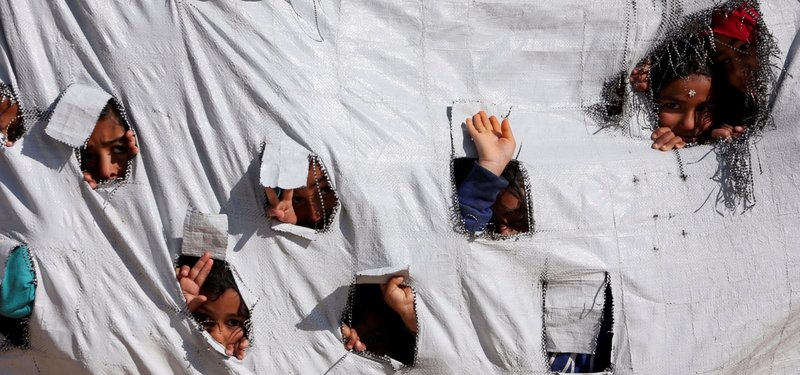
Several thousand foreign children languish in Syria camp - UN
A senior UN official called Thursday for countries to take responsibility for their nationals stuck in a camp in Syria, including thousands of foreign children of Daesh fighters. "There is a prime responsibility of states vis-a-vis their own nationals," Panos Moumtzis, the UN regional coordinator for Syria, told reporters in Geneva. According to the UN, 260 people have died while making the journey or upon arrival at the camp since December, including 211 children under the age of five.
- World
- Reuters
- Published Date: 06:39 | 18 April 2019
- Modified Date: 06:39 | 18 April 2019
Around 2,500 foreign children are stuck in a guarded section of a Syrian camp after fleeing Daesh's last stronghold, a senior United Nations official said on Thursday, urging governments not to abandon them.
The children's plight at the al-Hol camp in northeast Syria is a dilemma for nations who saw citizens leave and fight for the Daesh terror group in Syria and Iraq only to find themselves in limbo after the fall of their self-proclaimed "caliphate."
Panos Moumtzis, U.N. humanitarian coordinator for the Syria crisis, said home nations must take responsibility for repatriating their citizens, prosecuting where necessary.
"Really nobody should be rendered stateless and every effort should be made to find a solution for these people," he told a Geneva news briefing.
The children are among 10,000 non-Syrian and non-Iraqi nationals kept in a "restricted" section of the sprawling, camp where 75,000 people live in total.
Some 211 children were among at least 260 people who died of malnutrition or disease en route to the camp since December, the latest U.N. figures show.
Britain revoked the citizenship of a teenager who left at 15 to join Daesh in Syria, while Austria and Switzerland have said they will not help bring home adults who joined Daesh.
But Moumtzis said states had a legal responsibility, especially for children, many of whom were born in IS camps. "Children should be treated first and foremost as victims" and "irrespective of family affiliation," he said.
The situation is further complicated because most states lack the capacity to offer consular services or access their nationals in the area. "There has to be a concerted effort, this is not about blaming or 'naming and shaming', but it's really about being practical and finding a way forward that would find a solution," the U.N. official said.
- Half of internet hate crimes target Muslims in Sweden: report
- Short-circuit suspected cause of Notre Dame fire, police official says
- The 10 instances of possible obstruction in Mueller report
- Debate over future Notre-Dame spire fuels French divisions
- Turkey to maintain partnership of F-35 technology: Erdoğan aide

